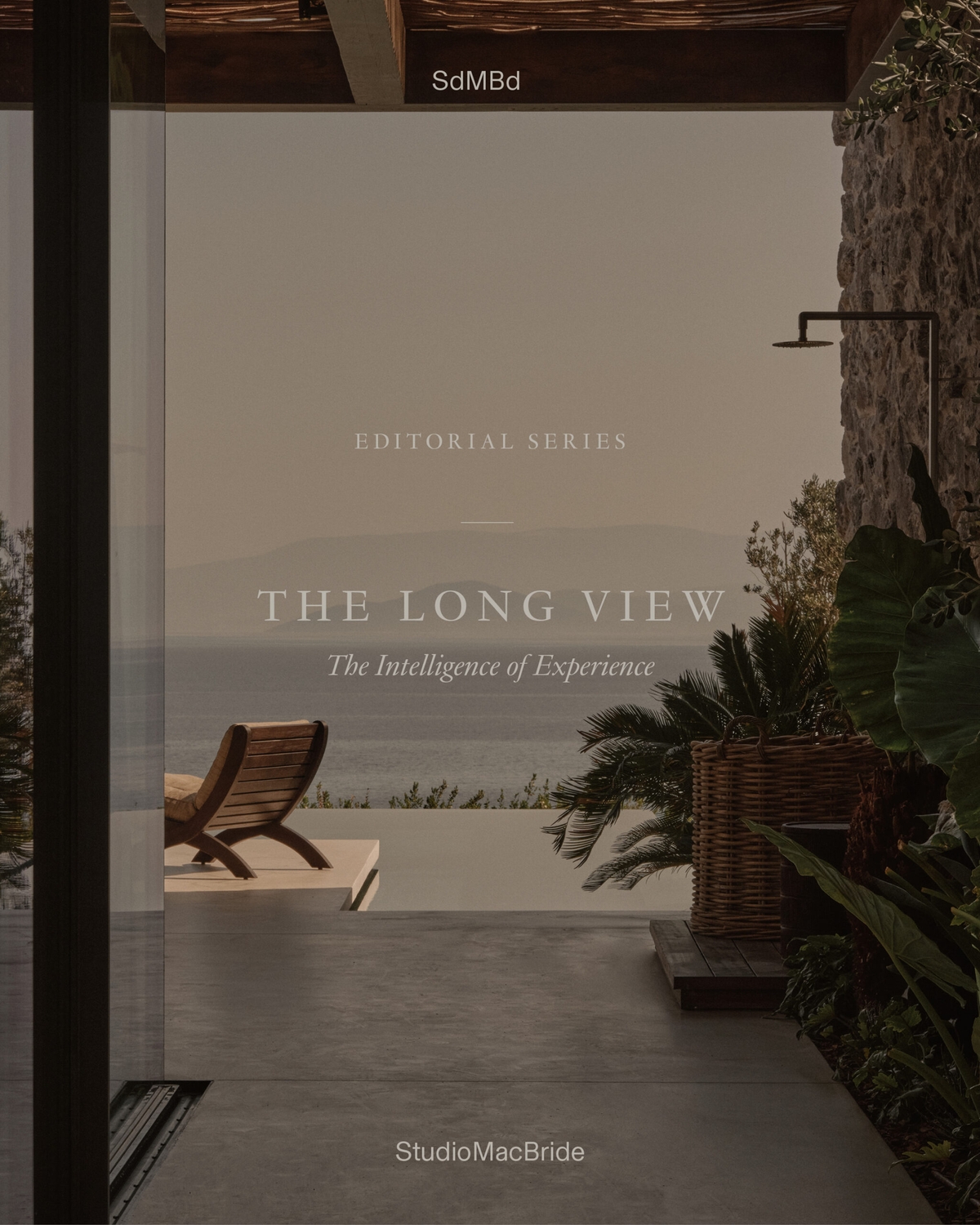
Essays
ImagesGeorg Roske / Scorpios

The Intelligence of Experience
Essays
Most hospitality spaces are designed around assumptions. The ones that work begin with insight. Insight into how people move. What they need before they articulate it. How to guide them through space in ways that feel intuitive rather than managed. This is behavioural intelligence as a design tool.
The projects we’re shaping now begin with the rhythms people carry with them — the instinct to decompress after arrival, the pull toward warmth in the evening, the need for predictability in the morning, the desire for autonomy without abandonment. These aren’t insights uncovered halfway through. They form the foundation of how we design from the start.
Real experience design begins with knowing who you’re designing for — not as demographics or personas, but as patterns of behaviour and need. What brings someone to a place. How they want to feel once they arrive. What they are seeking that they may not yet know how to name. This is anticipatory hospitality — meeting needs before they become requests.
But hospitality is never only an individual experience. Every space holds multiple rhythms at once: movement and pause, solitude and sociability, intention and instinct. Designing for experience means shaping how those rhythms coexist A space should hold its clarity in both stillness and movement. The choreography must hold both scales with the same clarity. When this understanding is absent, a space never quite finds its rhythm.
For owners, the value is felt long before it’s measured. When a place understands its guests quietly and consistently, they settle faster, stay longer, and return more often. Over time, this becomes cultural value, emotional value, and financial value. The industry talks about “adding experience.” But true experience isn’t a layer. It’s the intelligence that shapes everything from the start. The most successful spaces aren’t the ones that impress immediately. They’re the ones that continue to feel right the longer you stay.
That is the intelligence of experience — designing with awareness, not for it.
__
Next in the series: The Long View | Cultural Authorship as Strategy